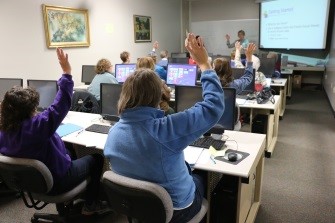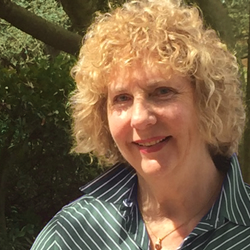Happy Birthday U.S National Parks! Actress Bella Thorne Champions Dyslexia, NPS Sites
Actress and singer Bella Thorne, age 18, is an advocate for students with dyslexia. View her video (44 seconds) embedded above where she shares how dyslexia impacts her life.
In addition, she also is a Centennial Ambassador for the 100th birthday of the U.S. National Park Service. Thorne is recognized in her role in the Disney series entitled “Shake It Up.” She might like to know that the field of teaching students with dyslexia and other learning disabilities is undergoing a shake up, too. There is greater legislative action and awareness about dyslexia at the federal, state and local levels. Those efforts are changing instruction and teaching in local schools.
For example, AIM-VA and its partners can provide students who are eligible for services with a variety of accessible books about the National Parks and all other school subjects. A new option for school year 2016-2017 enables teachers who have eligible students to convert worksheets about the national parks from print into formats that increase student participation. Eligibility occurs when education teams decide that students need accessible learning materials for their instruction.
Accessible Learning And The National Park Service
President Woodrow Wilson signed National Park Service Organic Act into law in August 1916. That legislation created the National Park Service. With that came the movement nationwide to conserve the scenery, the natural and historic environment, as well as the wildlife found inside the U.S.
NPS controls more than 84 million acres of land. NPS sites are found across the U.S. and include national monuments, Civil War battlefields, and historic sites. Studies about natural and American history, science, social studies and more via the national parks need not depend on traditional print materials that lock some students out of learning.
Ideas For Accessible Instruction
The following resources give choices in the way that students learn. Options include videos, photographs, and accessible book formats. Mix up learning, especially for struggling readers, and consider these resources:
- Download accessible books about the National Parks from AIM-VA partners. Bookshare offers audiobooks with high quality electronic speech, while Learning Ally audiobooks use human narrators to read the text.
- Take a photo tour of selected NPS sites across the U.S.
- Use a mobile device and take a video tour of the “Hidden Worlds of the National Parks” created by the Google Arts & Culture. See lava tubes, shipwrecks, and a glacier crevasse up close.
- Log on to the National Geographic website and play “Can You Identify the Park from the Picture?” activity.
- Check out the Find Your Park site to manipulate photos and make park locations personal or to find park stories uploaded and shared by visitors.
- Delve into teacher resources on the NPS website that are searchable by subject, grade level, and education standards.
- Explore Teaching with Historic Places, including free lesson plans, to enrich students' knowledge of place, people, and events.
- Try free PBS lesson plans for teachers about NPS sites and "This Is America," the film by Ken Burns.
- Consider that teacher-made National Park worksheets and those with copyright exemptions for teachers by NPS can be submitted for conversion for individual students in the Commonwealth. Watch for the "Curriculum-Based Materials" link on the AIM-VA Portal. Other states may offer a similar service.
- View NPS Centennial Ambassador Bella Thorne's video promoting U.S. National Parks (1:09 min.)
We Are AIM-VA
Accessible educational materials (AEM) help to create access to the curriculum for students with dyslexia, learning disabilities, vision or physical challenges, and others. A federally funded AEM program in every state assures that books in alternative formats are provided free of charge to eligible students with disabilities whose education teams take action. The AEM program operates under a legal exception to federal copyright law. Check out the AIM-VA home page to learn more about eligibility in Virginia. In other states, contact a special education teacher, a school administrator or download a list of AEM state contacts.![]() .
.
Follow AIM-VA on Facebook ![]() , Pinterest
, Pinterest ![]() , and Twitter at @AIMVirginia.
, and Twitter at @AIMVirginia.![]() and/or follow me @aimnoncat.
and/or follow me @aimnoncat.![]() . Subscribe to AIM-VA's new monthly newsletter. Sign up here.
. Subscribe to AIM-VA's new monthly newsletter. Sign up here.







